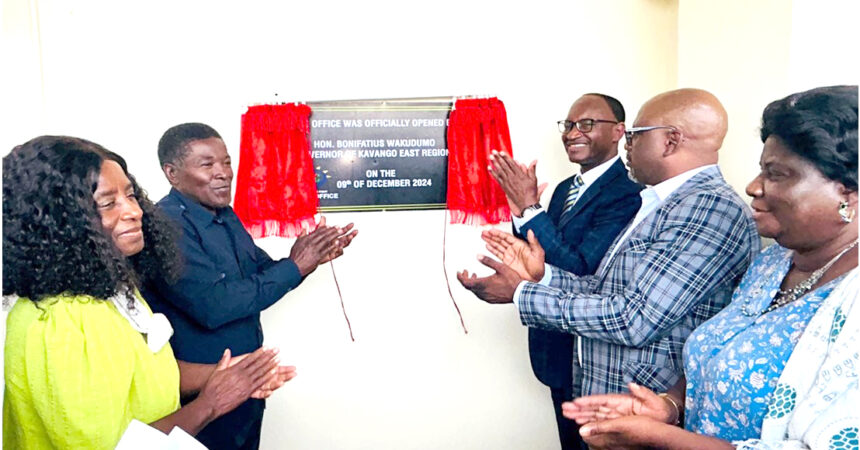RUNDU – The Anti-Corruption Commission (ACC) has referred 817 dockets to the Office of the Prosecutor, General for a decision on whether to prosecute or not.
This has resulted in 413 cases being concluded in criminal courts, while other cases are still pending a decision, or have been dealt with differently.
“I must point out that it is not required that all corruption cases must be dealt with through criminal courts, because not all corrupt conduct meets criminal elements that merit criminal prosecution,’’ said the commission’s director general Paulus Noa.
He made these remarks during the commemoration of International Anti-Corruption Day at Rundu last week.
The commemoration was held simultaneously with the official opening of the ACC’s new office in Rundu.
The office will serve the north-eastern regions of Kavango East, Kavango West and Zambezi.
Apart from its head office in Windhoek, the commission now has offices in Oshakati, Otjiwarongo, Swakopmund, and Rundu being the latest.
“Charge the culprits with misconduct charges, and if found guilty, deal with them appropriately. Do not depend on prosecution for every corrupt act. Prosecution has its own various causes of delays,’’ he said.
The theme for this year’s commemoration is ‘Uniting with Youth Against Corruption: Shaping Tomorrow’s Integrity.’
“This is particularly significant. It highlights the vital role the youth can play in shaping a future where integrity is championed, and corruption is not tolerated. Youth is an invaluable asset to any nation.
They are game-changers,’’ he added.
Being at the prime of their lives, Noa said young people embody many positive qualities. Therefore, Namibia must recognise the role of youth in raising anti-corruption awareness and building a stronger good governance system.
“This is more particularly the case given the fact that in Namibia, youth represent much of the population, at 70%, according to the Namibia Statistics Agency’s recent national census. This fact calls for active participation of youth in national developmental programmes, including good governance,” he added.
The ACC boss said the commission is ready to work with the communities the new Rundu office will serve.
“The office belongs to the public, and we expect the public to make use of the office to the fullest.
Raise anti-corruption awareness by engaging the officials in the office, reporting allegations of corruption to the office, and providing constructive suggestions and opinions on the best ways of preventing corruption to the office.
Support the officials to succeed in their efforts. “Where you observe that they demonstrate a lack of commitment or conduct themselves in an undesirable manner, raise your concerns to the relevant authorities,” said Noa.
Meanwhile, Kavango East governor, Bonifatius Wakudumo, who delivered a keynote address at the event, stated that corruption is a global phenomenon that hinders development and fosters inequality.
“It poses a direct threat to poverty reduction and the achievement of the Sustainable Development Goals,” said the governor.
He added: “In Namibia, citizens have united to express strong rejection of corruption and to demand that the government takes more drastic action to combat this threat and ensure unity, democracy, and the promotion of equitable development for all.
This call for action must be acknowledged by all. Every Namibian has a role to play in the fight against corruption, and it is important for everyone to contribute and be part of the fight against corruption.”



